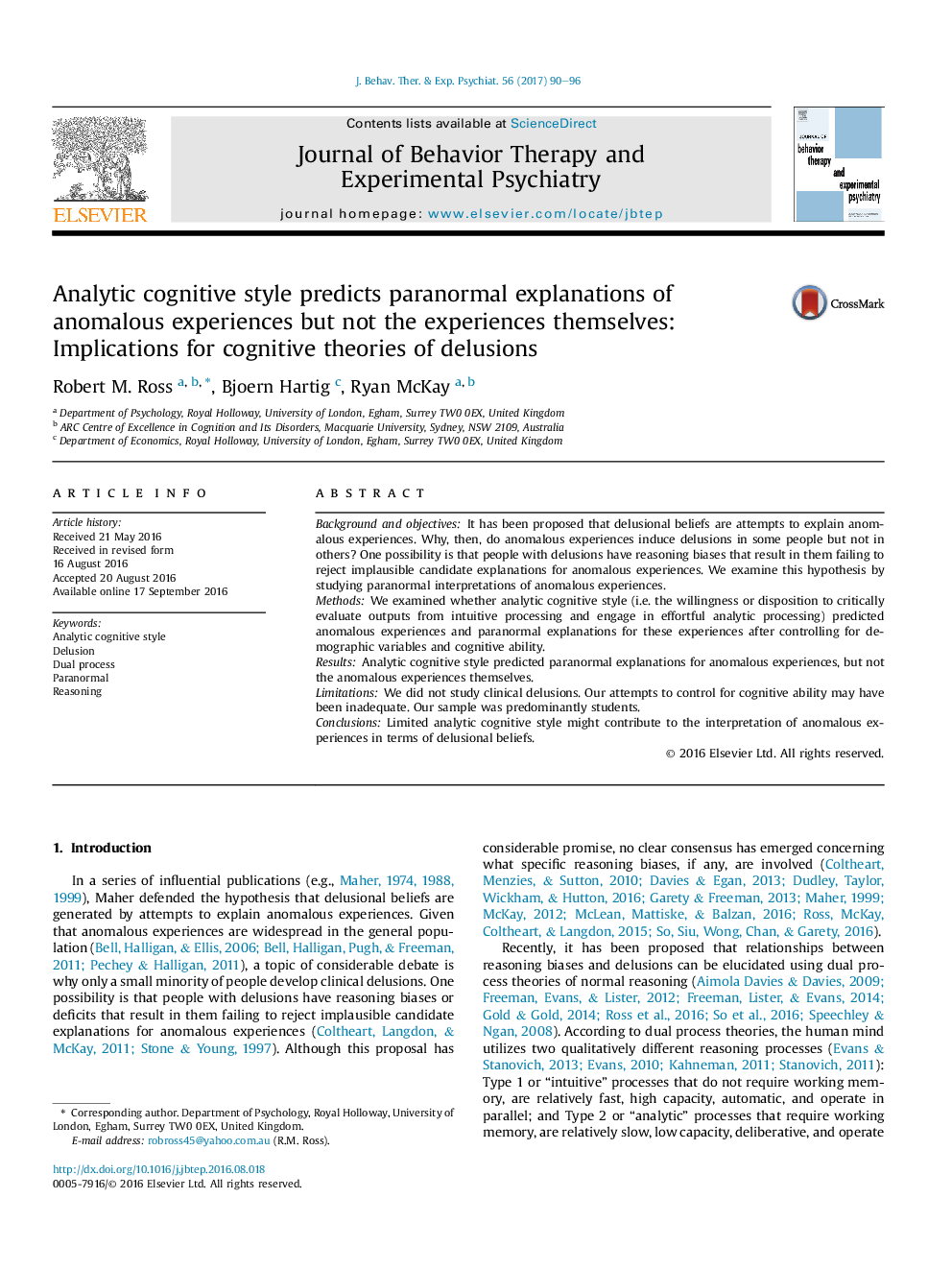| Article ID | Journal | Published Year | Pages | File Type |
|---|---|---|---|---|
| 5038989 | Journal of Behavior Therapy and Experimental Psychiatry | 2017 | 7 Pages |
â¢We examine the relationship between cognitive style, experience, and belief.â¢Analytic cognitive style predicts paranormal interpretations of anomalous experiences.â¢But analytic cognitive style does not predict anomalous experiences themselves.â¢Limited analytic cognitive style might be involved in the formation of delusional beliefs.
Background and objectivesIt has been proposed that delusional beliefs are attempts to explain anomalous experiences. Why, then, do anomalous experiences induce delusions in some people but not in others? One possibility is that people with delusions have reasoning biases that result in them failing to reject implausible candidate explanations for anomalous experiences. We examine this hypothesis by studying paranormal interpretations of anomalous experiences.MethodsWe examined whether analytic cognitive style (i.e. the willingness or disposition to critically evaluate outputs from intuitive processing and engage in effortful analytic processing) predicted anomalous experiences and paranormal explanations for these experiences after controlling for demographic variables and cognitive ability.ResultsAnalytic cognitive style predicted paranormal explanations for anomalous experiences, but not the anomalous experiences themselves.LimitationsWe did not study clinical delusions. Our attempts to control for cognitive ability may have been inadequate. Our sample was predominantly students.ConclusionsLimited analytic cognitive style might contribute to the interpretation of anomalous experiences in terms of delusional beliefs.
